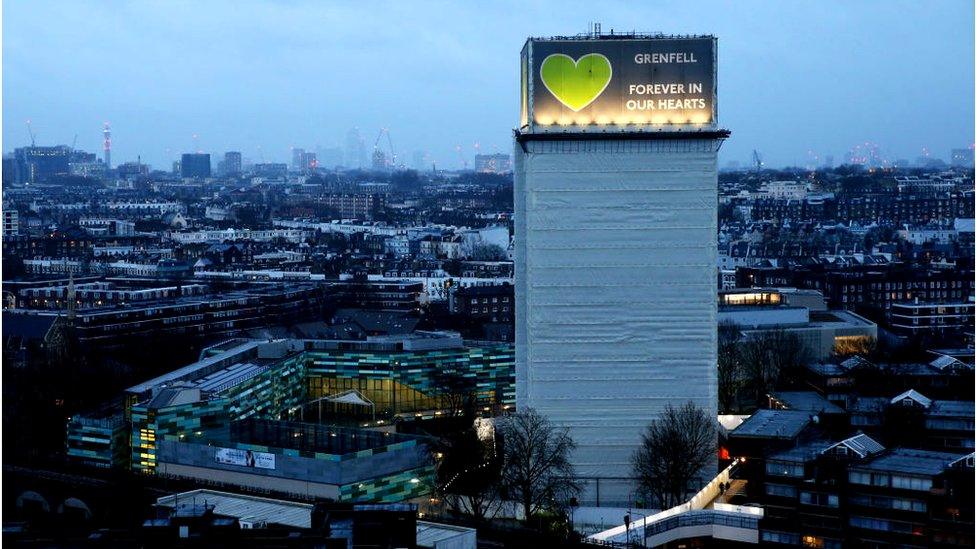Grenfell testimony week: From unacknowledged to acknowledged
- Published
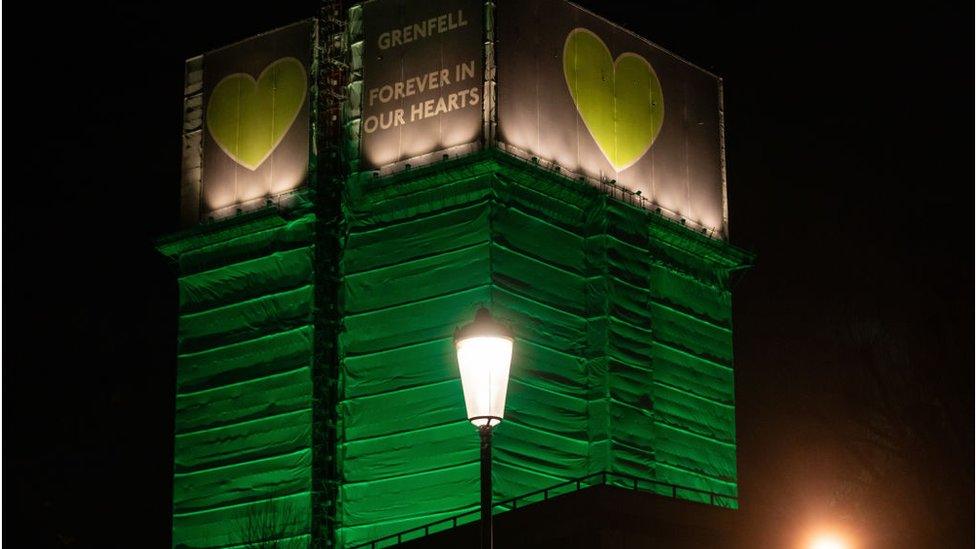
Grenfell Tower six and a half years after the fire that killed 72 people
Every morning the lights at Westminster's Church House were dimmed and the names of the 72 victims of the Grenfell Tower fire were read out.
Nearly seven years after the disaster, the Grenfell testimony week was held at the request of the survivors and the bereaved.
The aim, according to legal mediator - and former president of the Supreme Court - David Neuberger, was to move people "from being unheard to heard, invisible to visible and unacknowledged to acknowledged".
Some people spoke of the loved ones they lost. Others preferred to have their words read out by someone else.
Also in attendance were representatives from 22 of the companies many of those affected believe were responsible for the loss of lives, the loss of homes, the loss, for some people, of everything.
They wore no name badges. Place cards showed who they worked for - the government, Kensington and Chelsea Council, London Fire Brigade and companies involved in the tower's refurbishment.
A major part of the refurbishment was the installation of exterior cladding. The public inquiry, external found the cladding had been the primary cause of the fire's spread.
Cladding business Arconic sent nobody to the testimony week. They did, however, make a "substantial financial donation" towards the event, the company said in a statement.
Speaker after speaker delivered harrowing testimony about the victims and how their death continues to affect them.
Marcio Gomes's baby son Logan - the youngest victim - was stillborn. Mr Gomes told the room about the life his son, his "prince", should have had.
He described his family's excitement at the new arrival and detailed the experiences, such as hearing the baby's first cry, he will not have.
He said: "This is what you have taken away from me."
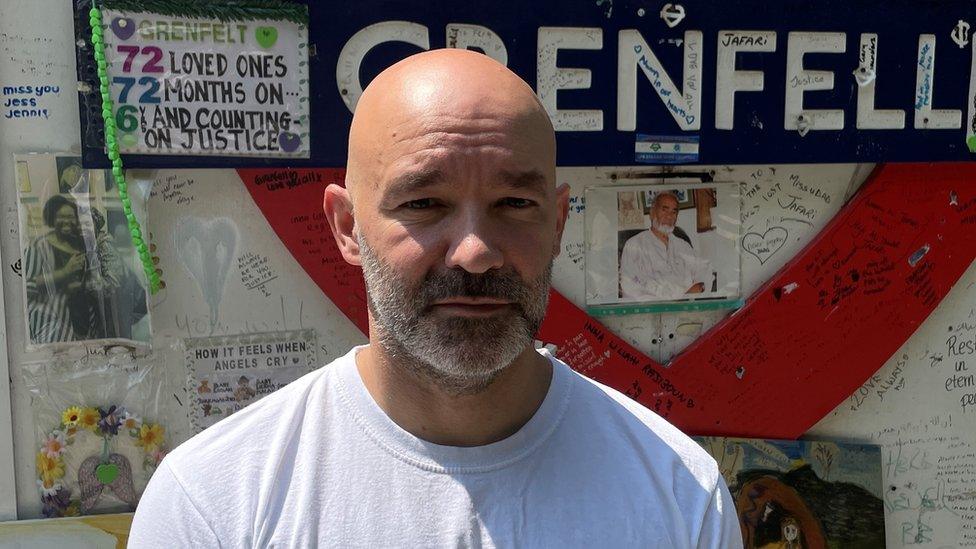
Marcio Gomes described the life his son could have had
During the public inquiry there was detailed evidence about what led to the fire, what happened on the night and the aftermath. A number of politicians, executives and employees were cross-examined by lead counsel Richard Millet KC.
One after another told him they didn't remember or couldn't recall certain events. A montage of these "couldn't recall" recordings was played at the testimony week.
Many listening shook their heads.
Bedriya Jemal Kelbeto lost her sister Nura, Nura's husband Hashim and their three children Yahya,13, Firdaws,12, and Yaqub, six.
"Why has someone not taken responsibility?" she asked. "Why are these people being protected?"
Not everyone affected saw the event's value. Some were sceptical of its timing and purpose, but others saw it as an opportunity worth taking.
Survivor Willie Thomson said he and other residents were badly treated before and after the fire.
"But," he concluded, "we have a saying in Ireland: 'Our day is coming.'"
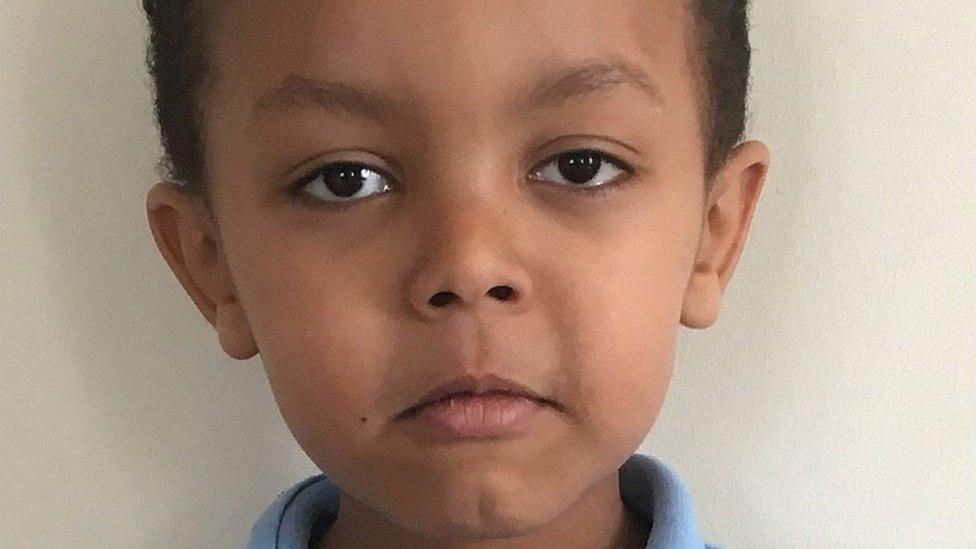
Isaac Paulos was five years old when he died
Sharokh Aghlani lost his disabled mother Sakina Afrasehabi, 65, who lived on the 18th floor and his aunt Fatemeh Afrasiabi.
"They think they've paid us off and got away with it," he said.
"It's important to get real cultural change so Grenfell doesn't happen again."
Paulos Tekle's five-year-old son Isaac died while escaping from the 18th floor - having been told to stay put by the fire brigade.
Mr Tekle said he "wanted to look into the eyes" of the company representatives so they could see his anger and sorrow.
Speakers were still suffering - not just mentally, but physically.
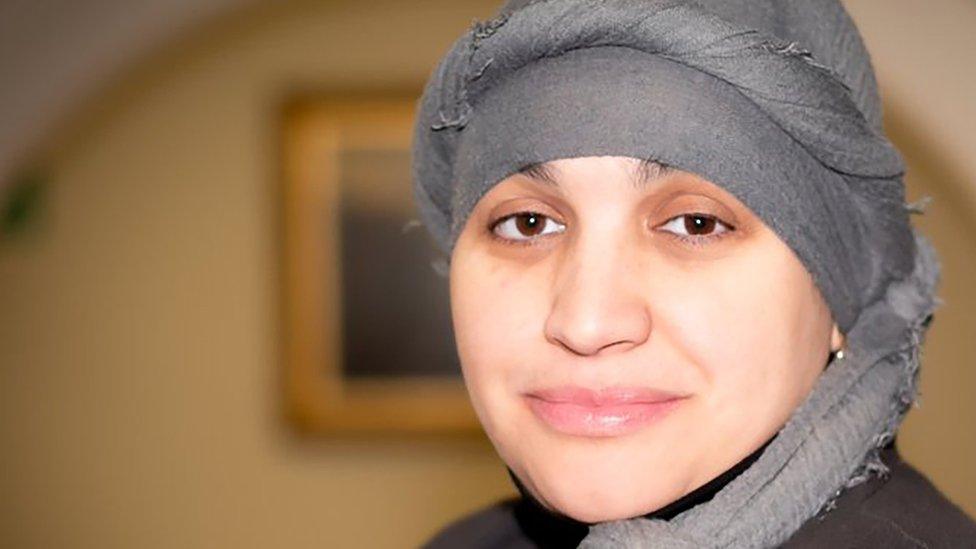
Hanan Wahabi wanted to be a voice for her relatives who died in the Grenfell fire
Hanan Wahabi looked frail but spoke with strength and bravery.
She lost her brother Abdulaziz, sister-in-law Faouzia, and their three children Yasin, 20, Nur Huda, 15, and Mehdi, eight.
"Our houses are still not safe, people are still dying.
"The web of blame and lack of change post-Grenfell rests on your shoulders."
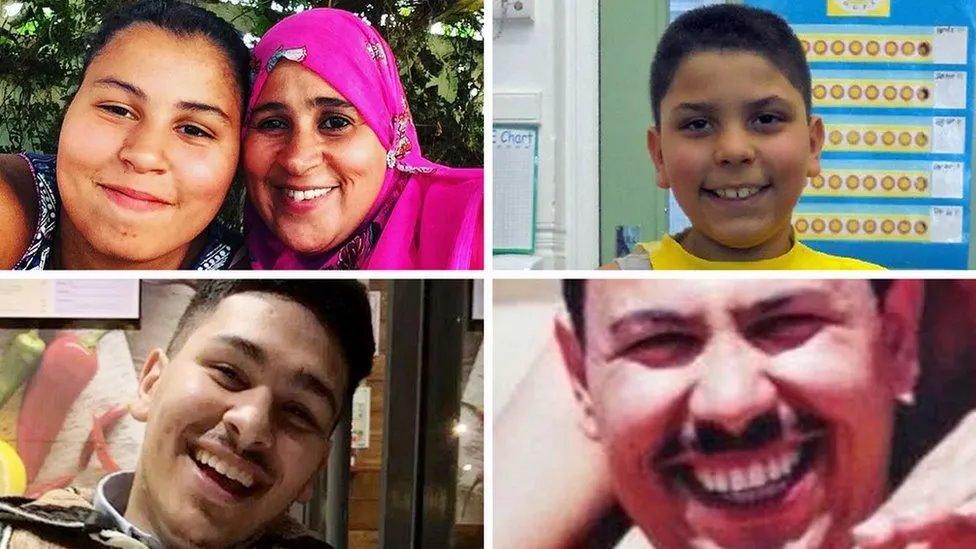
The El-Wahabi family lived on the 21st floor of Grenfell Tower (clockwise from top left): Faouzia, Nur Huda, Mehdi, Abdulaziz, Yasin
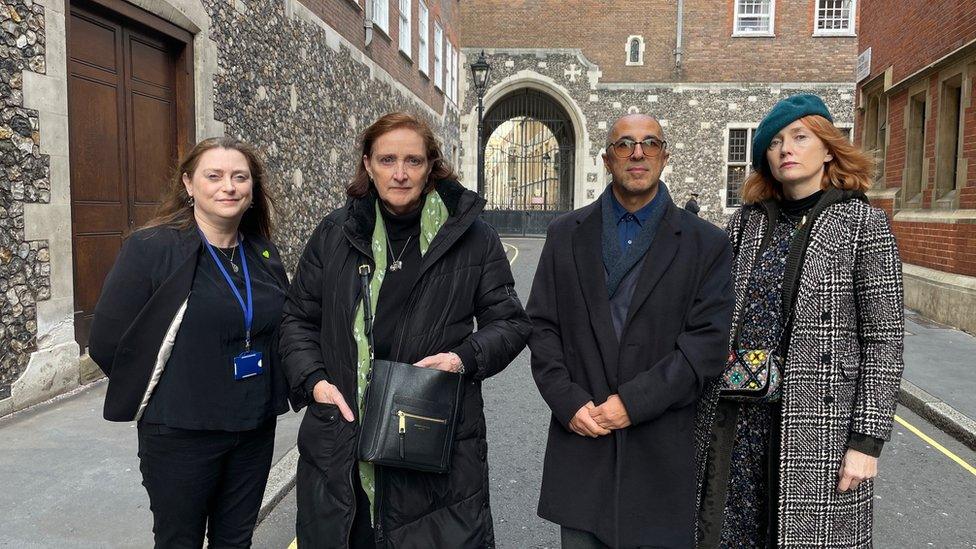
Lancaster West Estate residents and north Kensington politicians outside Church House, where the event was held
Residents from the nearby Lancaster West estate gave unflinching accounts of their ongoing anxiety of prolonged exposure to toxins.
They spoke of coughing up blood, skin reactions and illnesses many of them fear are a result of the fire.
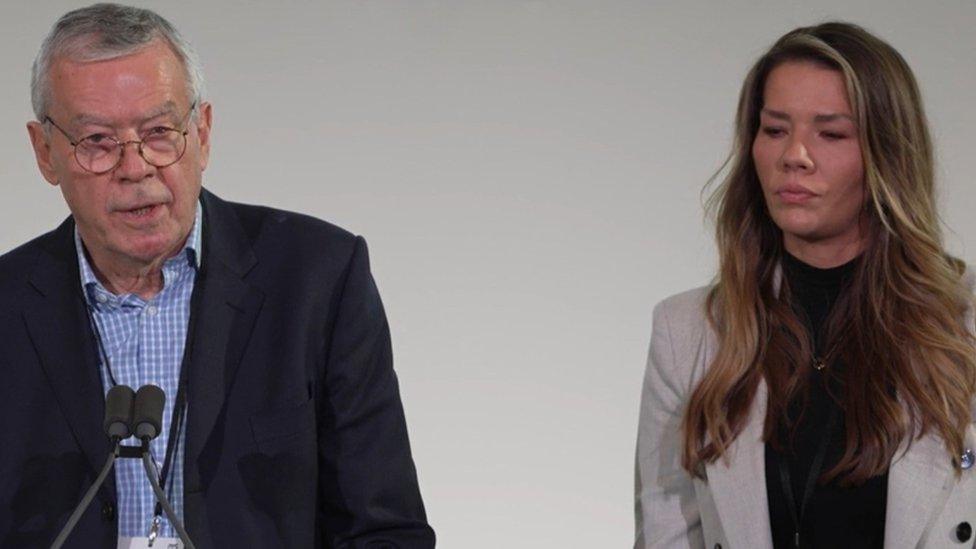
Martyn and Harriet Smith remembered their mother and grandmother Sheila
Some spoke publicly for the first time. The granddaughter of 84-year-old Sheila, who was the oldest person to die in the fire, described her as "proud, eccentric and loving".
Sheila had lived in Grenfell Tower for 34 years.
Her son Martyn Smith said the corporations "could have acted morally and ethically" rather than being "unsympathetic and unprincipled".
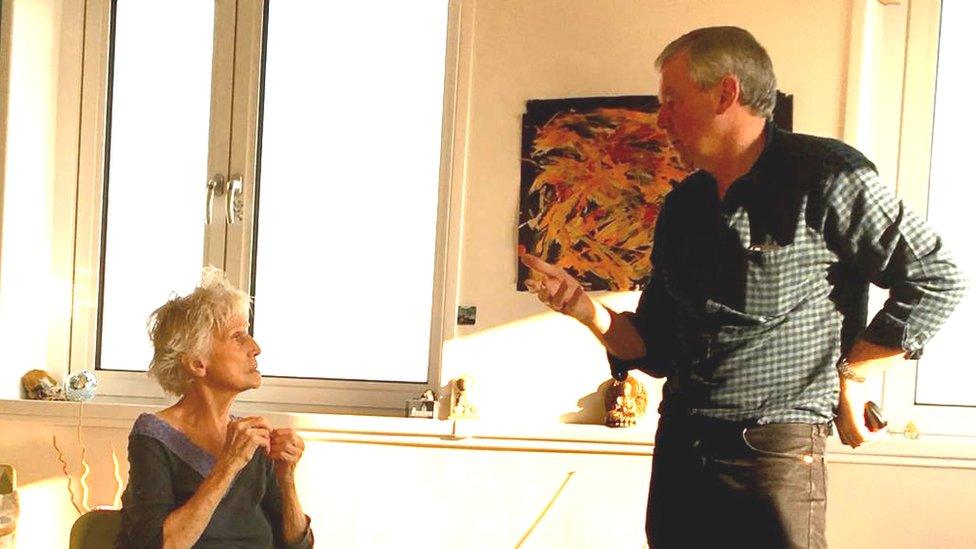
Martyn Smith's mother Sheila - pictured in her Grenfell flat - was the oldest Grenfell victim
Hassan Awadh Hassan, a devout Muslim, recorded his testimony in advance. He spoke of divine retribution.
His wife Rania and his daughters four-year-old Fethia and three-year-old Hania, died in the fire.
"When faced with your sins, only then will you realise your actions. Your expensive lawyers and your rehearsed lines will not save you," he said.
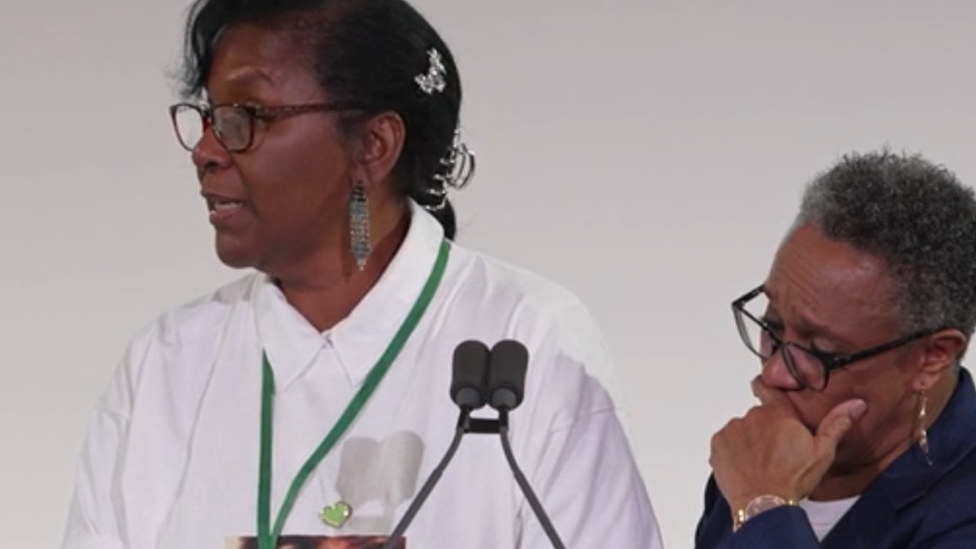
Bernie Bernard spoke of her brother, known as Moses
The last victim remembered was 63-year-old Raymond Bernard, who was known as Moses.
His sister Bernie said the fire would never had occurred "had there not been such greedy people in this world.
"You all remain driven only by profit."
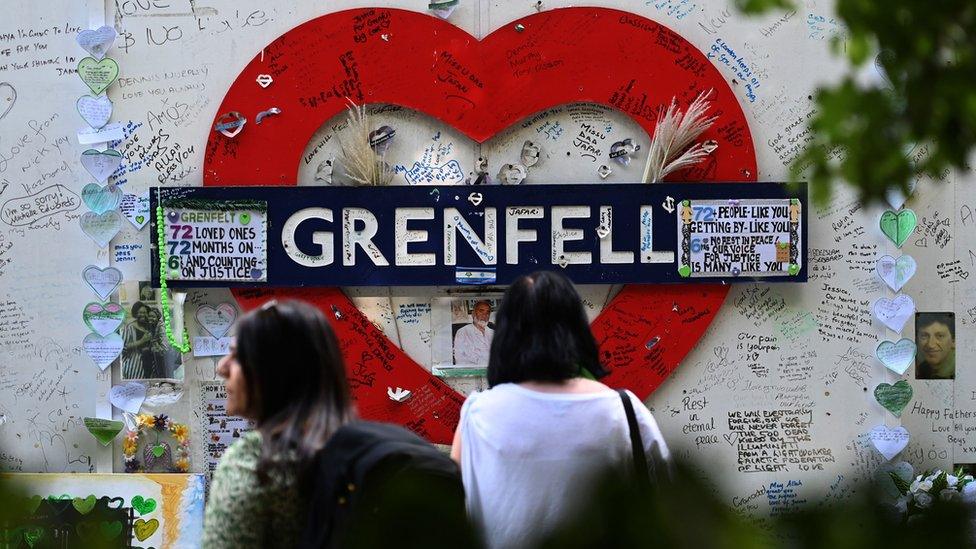
Some relatives said they didn't feel organisations listened at the event
Were the companies and organisations listening?
Sandra Ruiz, aunt of 12-year-old victim Jessica Urbano Ramirez, thinks not.
''I didn't really see any emotion in them. I'm interested in what they do with what they hear and what they've seen."
Throughout the event, the company representatives sat silently. Some looked uncomfortable. Some rubbed their eyes or bowed their heads. Some took notes.
Who exactly attended and what impact did it have on them?
Arconic, the cladding company, sent no representatives but gave money to fund the event.
Celotex, an insulation company, was represented by the CEO for Saint-Gobain UK, Mike Chaldecott.
Kingspan Insulation sent "senior executives". The company said "the testimonies we heard were extremely powerful and moving".
Whirlpool, the manufacturer of the fridge-freezer that started the fire, sent "senior executives and legal counsel who attended all week".
Kensington and Chelsea Council leader Elizabeth Campbell and deputy leader Kim Taylor-Smith attended every day.
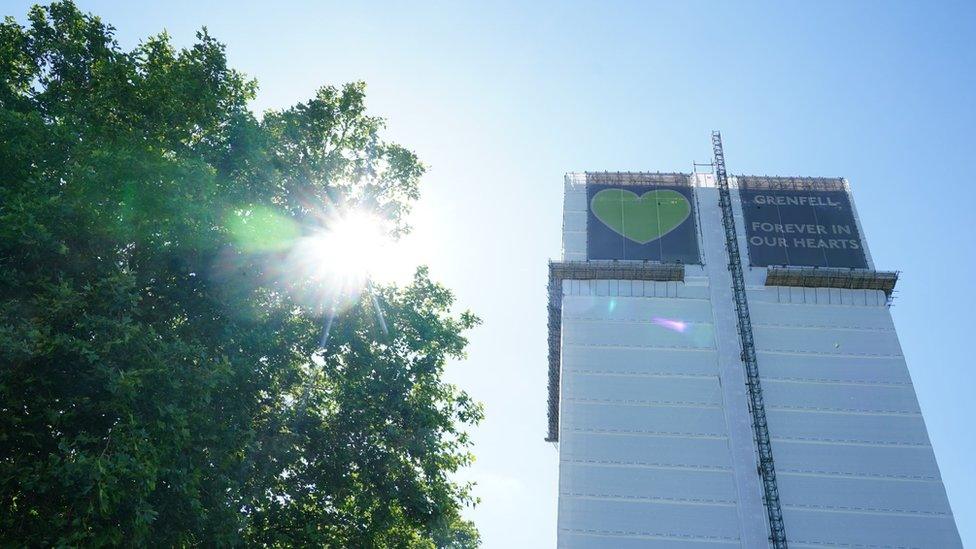
Organisers said Testimony Week was to give the bereaved and survivors an opportunity to speak to organisations
London Fire Brigade commissioner Andy Roe and senior officers were also there.
Mr Roe said that "hearing the testimonies has been a sharp reminder that every organisation involved, including the brigade, must be accountable for its actions or failings".
Housing Secretary Michael Gove and former Home Office minister Nick Hurd attended for one day.
The Met Police sent senior investigating officer Det Supt Garry Moncrieff to listen in.
The force said the fire was one of its "largest and most complex investigations". So far, the Met has taken 11,000 witness statements.
There are still many unanswered questions.
When and how will justice for the 72 victims be served?
Will the recommendations of the pending final report from the public inquiry - when published later this year - be implemented by government?
Will there be any criminal prosecutions? The Met Police said more than 40 people had been interviewed under caution, many on multiple occasions.
Once the inquiry's final findings are published, the Met will present its evidence to the Crown Prosecution Service, which could consider charges such as corporate manslaughter and gross negligence.
On the final day of the event, a large group of bereaved and survivors walked on stage and faced the representatives. The 72 victims' names were read out. All the representatives stood up. The audience followed.
The dignity and resilience of those affected by the Grenfell Tower fire has often been praised.
Nearly seven years on, their wait for justice does not get any easier.

Listen to the best of BBC Radio London on Sounds and follow BBC London on Facebook, external, X, external and Instagram, external. Send your story ideas to hello.bbclondon@bbc.co.uk, external
- Published23 January 2024
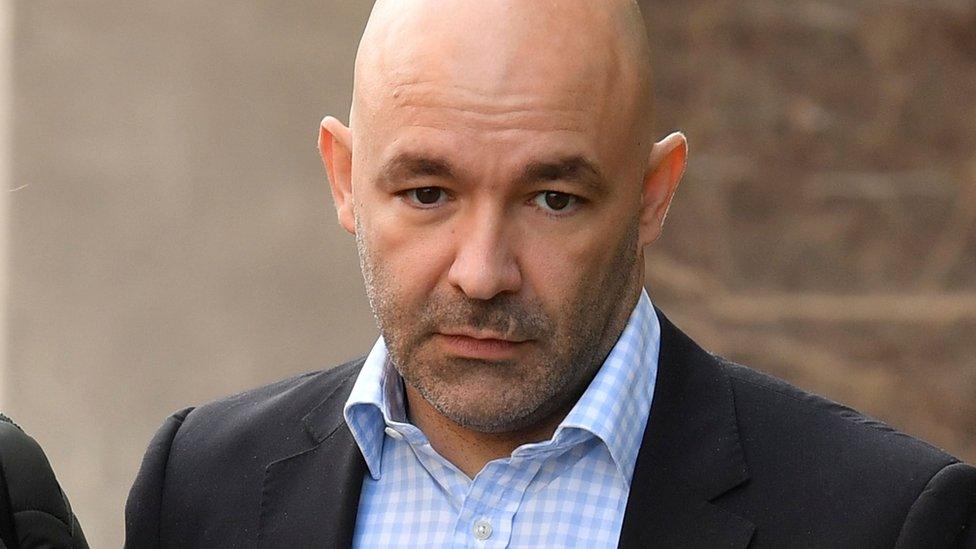
- Published22 January 2024

- Published2 May 2023
